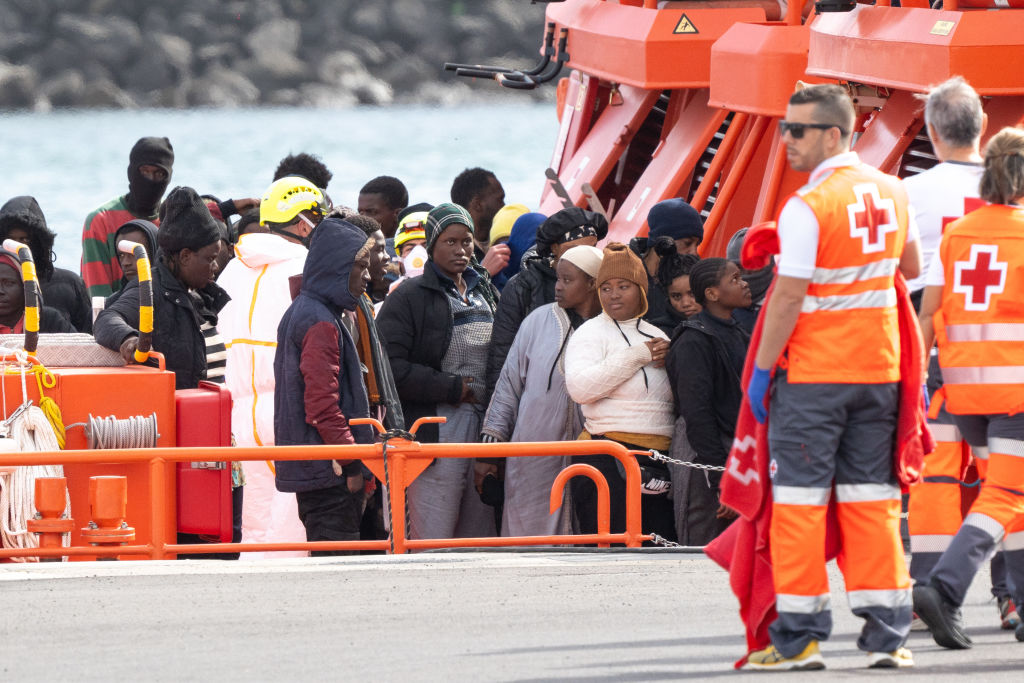Spanish Prime Minister Pedro Sánchez’s government has given itself a 10-day deadline to find a temporary solution to the overcrowding in migrant reception centres for unaccompanied minors in the Canary Islands. The region has been facing a severe strain on its facilities due to a surge in migrant arrivals, many of whom are coming from West Africa via the dangerous Atlantic route. This influx has intensified since August, with arrivals continuing despite the harsh winter sea conditions, according to reports from local media such as Canarias 7.
The situation has prompted concerns from various political groups, with Spain’s main opposition party, the Partido Popular (PP), calling for a state of migratory emergency to address the issue. The PP has also suggested the deployment of the army to curb irregular migration. The Canary Islands’ reception centres are overwhelmed, and the region is struggling to accommodate the increasing number of migrants, particularly minors.
In response, both the Spanish government and the regional conservative coalition, including the PP and Coalición Canaria, have pledged to work together to find a solution within the next 10 days. A significant point of contention in the proposed solution is the mandatory redistribution of migrant minors across Spain’s 17 autonomous communities, which is currently a voluntary process. The government is seeking to implement a formula that would allow for this redistribution without changing the Law on Foreigners. However, this proposal has faced strong opposition from the PP and the far-right Vox party (PfE), who argue against such measures.
Additionally, the Spanish government is also facing resistance from the right-wing separatist Catalan party JxCat, which holds crucial support for Sánchez’s government until the end of his term in 2027. This political friction has complicated efforts to pass the necessary legislation to address the crisis effectively.
According to the Canary Islands government, around 4,000 minors from the region, as well as 400 minors from the Spanish enclave of Ceuta in North Africa, need to be transferred to the mainland to ease the burden on local reception centres. Fernando Clavijo, the regional executive president, has suggested that the government could take extraordinary measures through a decree law as an initial step. He emphasized the urgency of the situation, stating that no one could oppose alleviating the severe emergency facing the Canary Islands.
The migration crisis in the Canary Islands has drawn attention to broader issues in Spain’s immigration policy. On 9 October 2024, Prime Minister Sánchez urged the European Parliament to accelerate the implementation of the Migration and Asylum Pact, moving its planned implementation date from 2026 to 2025. This proposal aims to address the migration crisis more effectively and ensure that EU countries work together to manage the growing pressures from irregular migration, particularly in regions like the Canary Islands.
The Canary Islands crisis has brought to light the challenges Spain faces in managing migration, especially from countries in West Africa. As the debate continues, it remains to be seen whether the Spanish government can find a solution that balances the needs of the region, the political opposition, and the broader EU framework for migration management.

